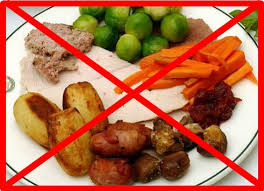 The miracle of Fasting
The miracle of Fasting
Fasting is primarily the act of willingly abstaining from some or all food, drink, or both, for a period of time. An absolute fast is normally defined as abstinence from all food and liquid for a defined period, usually a single day (24 hours).
Fasting has importance in all religions of world but with different styles/shapes and it may be the intermittent of nature. Fasting is the fourth of the Five Pillars of Islam and involves fasting during the holy month of Ramadan from sun rise till sunset. Muslims community do this practice all the year periodically or intermittently. Fasting is not only make a spiritual connection with God but it gives health benefits as well.
Scientists are uncovering evidence that short periods of fasting, if properly controlled, could achieve a number of health benefits, as well as potentially helping the overweight, as Michael Mosley discovered.
He said (5 August 2012, BBC Health News), " I'd always thought of fasting as something unpleasant, with no obvious long term benefits. So when I was asked to make a documentary that would involve me going without food, I was not keen as I was sure I would not enjoy it. I am not strong-willed enough to diet over the long term, but I am extremely interested in the reasons why eating less might lead to increased life span, particularly as scientists think it may be possible to get the benefits without the pain.
Intermittent fasting One area of current research into diet is Alternate Day fasting (ADF), involving eating what you want one day, then a very restricted diet (fewer than 600 calories) the next, and most surprisingly, it does not seem to matter that much what you eat on non-fast days.
There are no firm rules because so far there have been few proper human trials . I found that I could get through my fast days best if I had a light breakfast (300 calories), lots of water and herbal tea during the day, then a light dinner (grilled fish with lots of vegetables) at night. On my feed days I ate what I normally do and felt no need to gorge.
I stuck to this diet for 5 weeks, during which time I lost nearly a stone and my blood markers, like IGF-1, glucose and cholesterol, improved. If I can sustain that, it will greatly reduce my risk of contracting age-related diseases like cancer and diabetes".
The world record for extending life expectancy in a mammal is held by a new type of mouse which can expect to live an extra 40%, equivalent to a human living to 120 or even longer. It has been genetically engineered so its body produces very low levels of a growth hormone called IGF-1, high levels of which seem to lead to accelerated ageing and age-related diseases, while low levels are protective. The IGF-1 hormone (insulin-like growth factor) is one of the drivers which keep our bodies in go-go mode, with cells driven to reproduce. This is fine when you are growing, but not so good later in life.
There is now evidence suggesting that IGF-1 levels can be lowered by what you eat. Studies on calorie restrictors suggest that eating less helps, but it is not enough.
when our bodies no longer have access to food they switch from "growth mode" to "repair mode". As levels of the IGF-1 hormone drop, a number of repair genes appear to get switched on according to ongoing research by Professor Valter Longo of the University of Southern California.
From this information it is concluded that fasting can increase life span and it can protect body from age related diseases by lowering IGF-1 hormone. It is not recommended in some cases such as pregnant women or diabetics on medication, for whom it could be dangerous.
So Eat, Fast and live longer
Compiled by Aneela Hameed
No comments:
Post a Comment